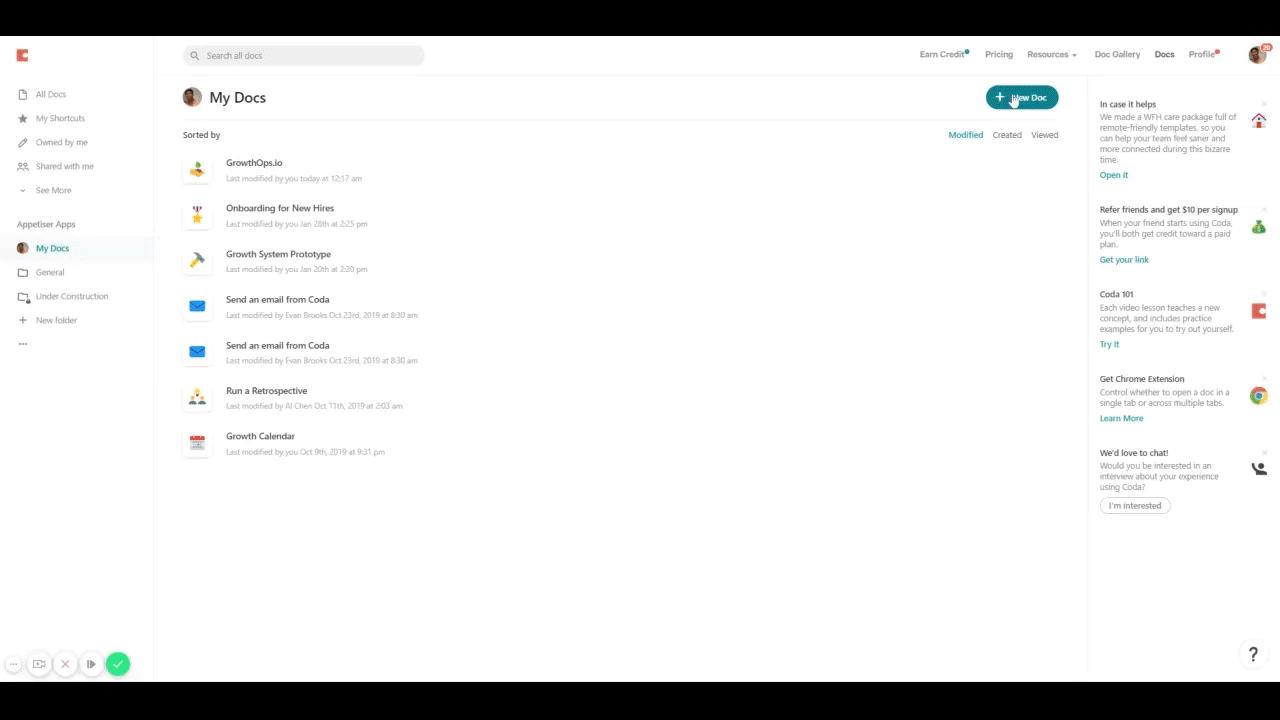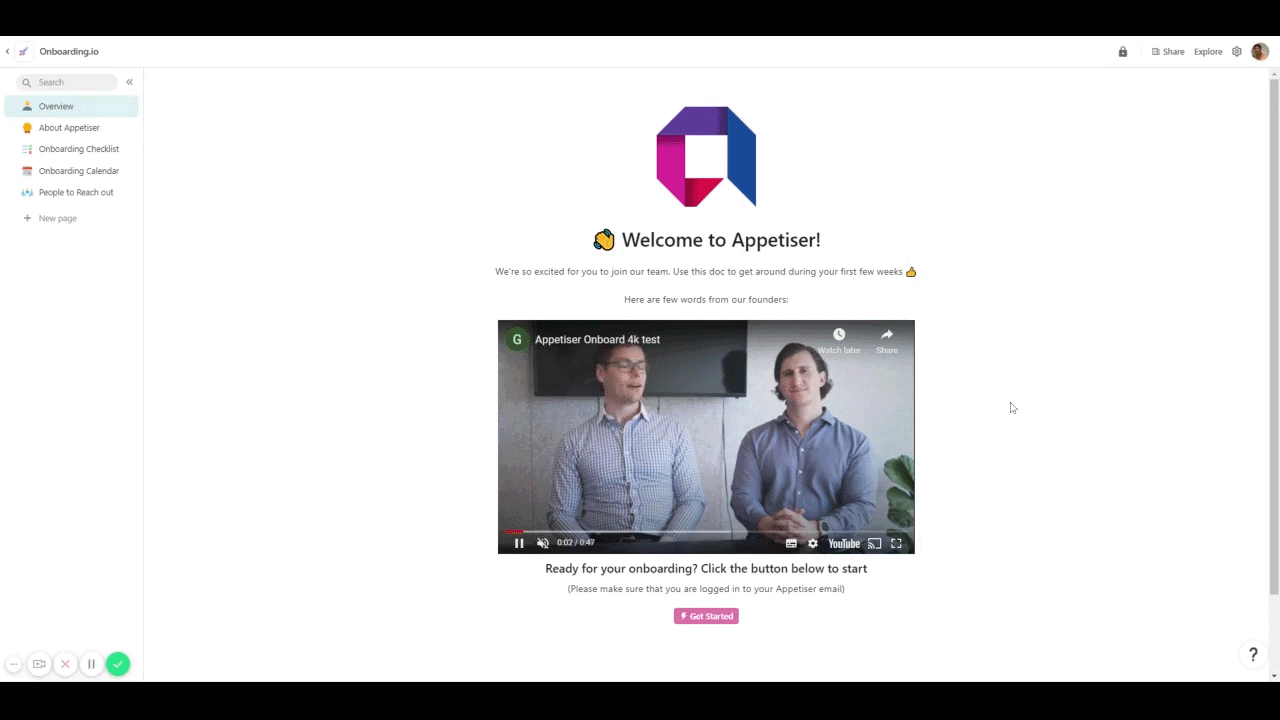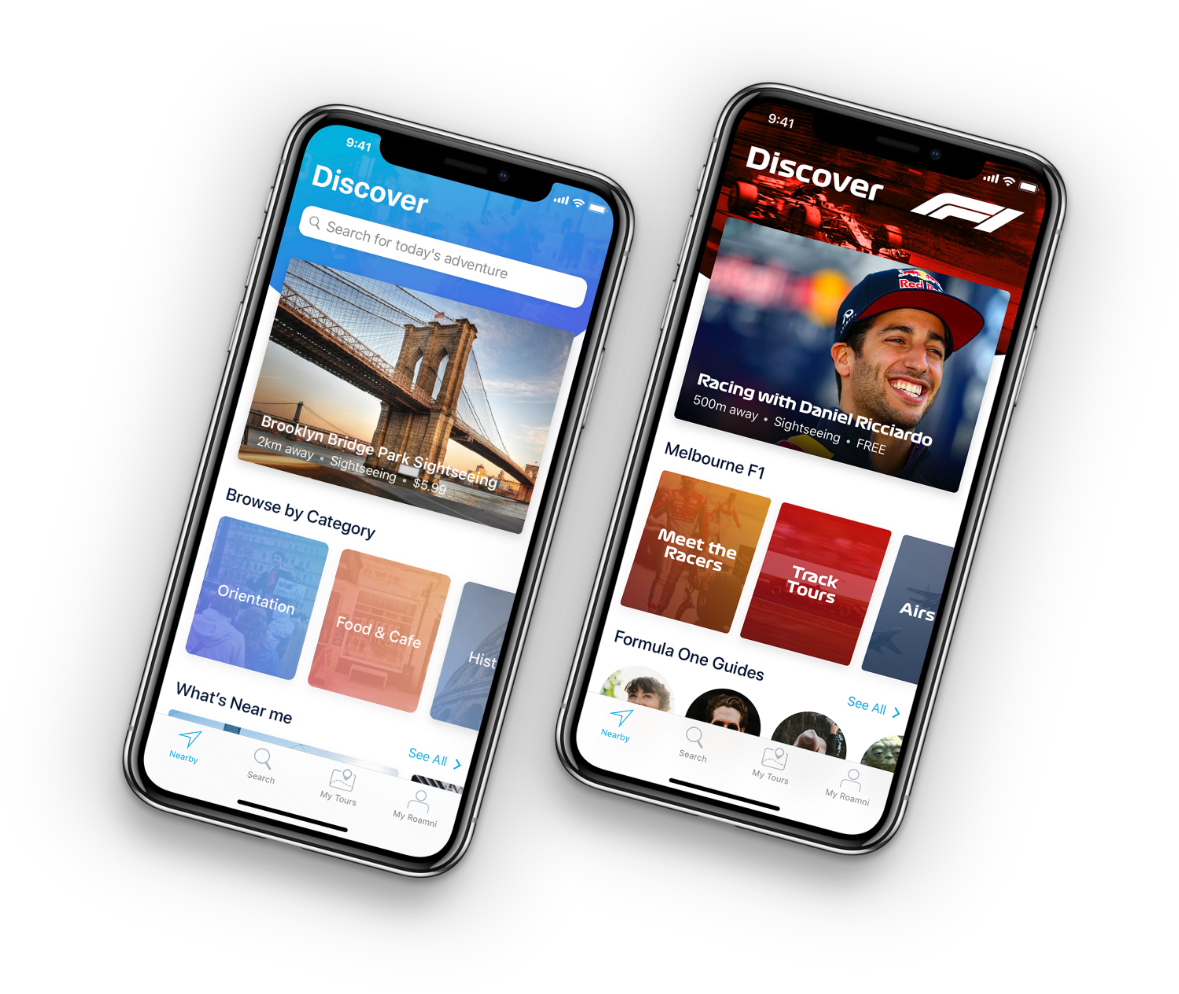Why Coda is the Best Tool for Teams That Use the OKR Framework

I’m Jamie, co-founder and Head of Growth at Appetiser Apps, a mobile and web development company based in Melbourne, Australia. Since we started in 2016, our team has flourished from a handful of local employee’s to include over a hundred skilled individuals from across the globe.
Like any startup that finds success, we were proud of our achievements. Yet this success came with a unique set of challenges. The increased client intake rate resulted in our workload soon reaching unsustainable levels. Expanding our recruitment program and our team to match it was the logical next step.
The expansion was made more challenging due to the remote nature of the app development industry. We soon realised that our onboarding process and systems would have to be standardised and moved entirely online if we were to get our team up to speed as quickly as possible.
Goal setting was also something we knew had to be altered to reflect our new rate of growth more suitably. Following a 12-month goal plan based around the Key Performance Indicator (KPI) framework was pretty standard practice. We soon decided that this long review timeframe and easily attainable targets were no longer suitable for a company that was seeing so many changes over a single quarter. We wanted to challenge ourselves to achieve more. It was then I discovered Objective Key Results (OKRs).
Goal setting
When compared to KPIs, OKRs encourage more meaningful and challenging goal-setting as well as increased transparency throughout the company.
‘Objectives’ are overarching aims defined by ‘key targets’, that are measurable and help convey achievements and progress. OKRs are based around quarterly goals, not yearly, giving more regular indicators of growth and performance. Goals are much more aggressive and it is encouraged to set them at a more challenging level. In other words, failure is promoted as a fundamental part of growth.
John Doer is one of the most prominent champions of the OKR framework. His book Measure What Matters describes in detail a leading concept within the framework labelled ‘dare to fail’. This idea is based around the view that failure should be cherished, not revered. It is to be seen as a step closer to your goal, not a sign of weakness. Reaching for the stars often leads us to reach the moon.
I shared John’s view that startups that experience success early, often fall into the trap of being overly cautious, to the detriment of the company and goals. Why change, when success the strategy has already found success? The fear of failure becomes a weight too heavy to carry and an internal culture can become stale.
As a tech company that has witnessed its team hit far-reaching goals without difficulty, the OKR framework was what we needed at Appetiser to facilitate consistent growth and strive for greatness over complacency.
While individual successes are applauded, OKRs prove that no single employee can achieve meaningful goals on their own. Everyone from the CEO to a new hire has goals that are transparent to the entire team. This transparency encourages teamwork and accountability, traits especially crucial in a growing organisation like ours.
The need for a custom system
Before we officially implemented the OKR framework at Appetiser, we realised the need for a complementary management tool. Fully customisable software to match our fluid company dynamic and growing team demands was a must. We also had to have the ability to assign tasks, track goals and manage projects.
While I am aware of some great tools out there built explicitly for organisations that use OKRs (Lattice and Profit come to mind), we realised that we needed something that can be moulded to Appettiser’s unique strategy.
We chose Coda because it was the only tool in the market that allowed us to create those custom systems. Coda is essentially a blank canvas, ready to be drawn upon.

It’s a toolkit rather than a ready-made solution and provided us with the software we needed to create, manage and track our OKRs however we saw fit. Moreover, it allowed us to measure and learn from our failures on our way to the moon.
What we achieved with Coda
Coda allowed us to meet the challenges of a growing company and ever-expanding team head-on. For new team members, we created onboarding.io, a Coda doc which helped us automate and track onboarding. Coda made it possible to reduce a one-week process to just three days while increasing effectiveness.
Having onboarding.io made it possible for us to grow to 150 new employees across three continents with a recruitment and onboarding process that’s 100% digital.

Having separate documents per department allows us to personalise processes according to the needs and objectives of each team and makes it easier for us to track the progress of tasks and get a granular view of each team member’s performance. Not to mention, having fewer people in one doc means fewer lags and faster loading time. This increased efficiency allowed us to launch a total of 11 apps since COVID restrictions started.
We also have a roadmap which allows us to consolidate all company OKRs, which we present during company-wide standups and helps us to track our progress as a whole.
One of our major milestones was being able to grow by an impressive 50% in revenue during the first two quarters of 2020. This wouldn’t have been possible without the systems we built through Coda. These systems kept the team aligned and on track to hit hard targets.
How you should do it
While there are ready-made templates already available in Coda, you will need to identify how your team is going to work with OKRs and find the tool that best addresses that.
Simply put, you need to build on a system that works for you. It will be a distinct advantage to work with a tool that’s as agile as your team.
Undeniably, it is tempting to utilise something that worked for more prominent and successful companies in the hope that it’s one size fits all. Relying on this approach can be a dangerous game, especially in the startup industry. A company must set its own goals, instil its process and systems around a unique framework built to reflect its specific demands. Coda lets us do all this and more through its versatility and suitability around which our OKR framework is built.


